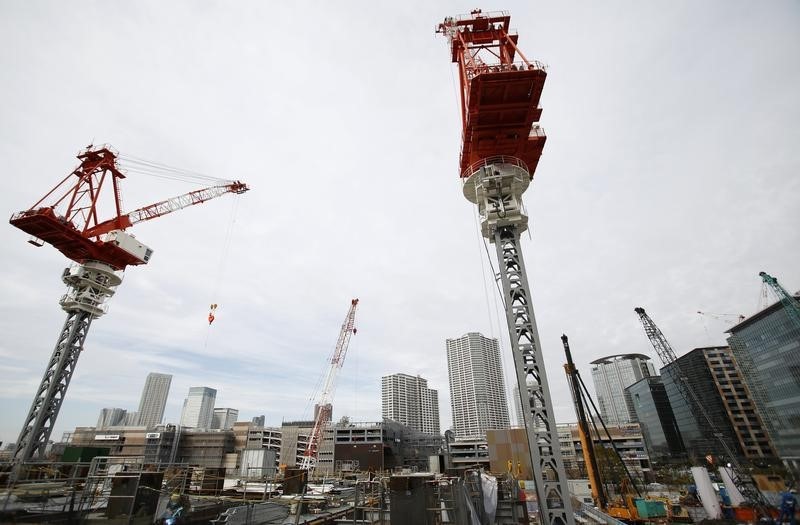By Kaori Kaneko
TOKYO (Reuters) - Japan's economy likely shrank less than initially estimated in the third quarter thanks to an increase in capital expenditure, underscoring views that the country only slipped into a shallow recession.
The world third-largest economy probably shrank an annualised 0.5 percent in July-September, compared with a preliminary reading of a 1.6 percent contraction, according to a Reuters survey of 24 economists.
Capital expenditure is seen to have risen 0.8 percent for the quarter from a preliminary 0.2 percent fall, the poll showed.
The data could offer relief for Prime Minister Shinzo Abe, who called a snap election for Dec. 14 after just two years in office to seek voters' mandate on his "Abenomics" strategy to reflate the economy and his decision to postpone a second sales tax hike originally scheduled for next year.
But the expected upward revision will unlikely be strong enough to alter analysts' view that the economy remains fragile after a sales tax increase in April dampened consumer spending.
"Although the economy continues rebounding from falls after the sales tax hike, there is no change to our view that the pace of recovery will be only moderate," said an economist at Japan Research Institute in the survey.
Takeshi Minami, chief economist at Norinchukin Research Institute, said "the economy will likely return to growth in October-December, but there is still a high chance the economy will shrink for this fiscal year."
The Cabinet Office will release the revised GDP data at 8:50 a.m on Monday (2350 GMT Sunday), and the finance ministry will announce the current account balance for October at the same time.
The current account balance probably show a surplus of 366.3 billion yen (1.95 billion pounds) in October, helped by gains in income balance which includes earnings from overseas subsidies. It would follow a 963 billion yen surplus in September.
The nation's leading indicator of capital spending, which will be released on Thursday, is expected to fall in October for the first time in five months, but analysts said the fall will be temporary as firms' strong earnings will help their expenditure.
Core machinery orders, a highly volatile data series regarded as an indicator of capital spending in the coming six to nine months, likely fell 2.4 percent in October from the previous month, the survey showed.
"Large manufacturers' earnings are recovering due to a weak yen, firms' appetite for capital spending remains solid," said an economist at Shinkin Central Bank Research Institute.
Compared with a year ago, core orders likely declined 0.3 percent in October, the survey showed, after a 7.3 percent rise the previous month.
The Cabinet Office will release the data at 8:50 a.m. on Dec. 11.
The nation's wholesale prices, due on Wednesday, are expected to have risen 2.7 in percent in the year to November, according to the survey.
The rise in the corporate goods price index (CGPI), which measures the price companies charge each other for their goods and services, follows a 2.9 percent increase in October.

(Editing by Kim Coghill)